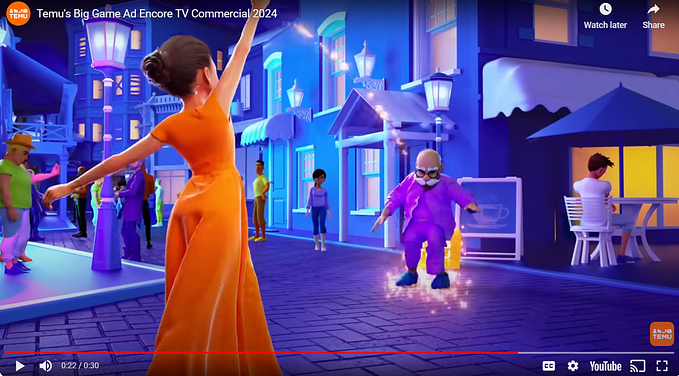Fiction vs. Non-Fiction
Sexual Harassment in VR, The Proteus Effect and the phenomenology of Darth Vader — and other stories….

I recently shared my experience of sexual assault in Meta’s Horizon. Within 60 seconds of joining Horizon — I was verbally and sexually assaulted — 3–4 male avatars, with male voices, essentially gang raped my avatar and took photos — as I tried to get away they yelled — “don’t pretend you didn’t love it” and “go rub yourself off to the photo”
A horrible experience that happened so fast before I could even think about putting the safety barrier in place. I froze.
It was surreal. It was a nightmare.
Since the development of VR, developers have been working towards creating ways to engage with virtual reality for the benefit of humanity. Benefits like increased human connection, augmented empathy, and new opportunities for education are commonly listed as positive impact of VR’s potential.(1) VR content generates patterns of stimulation, including light photons for the eyes, acoustic input for the ears, and tactile or haptic stimulators for touch. The way these stimuli are presented will give the user a sense of immersion. The immersive features lead to a sense of verisimilitude between oneself and the programming through an all-encompassing setting created by three aspects of VR; First is immersion itself, meaning that the user feels like they are in another environment. Second, specific embodiment aspects to the technology gained by users must have a sense of active presence. Third is the concept of embodiment, feeling that the virtual body (avatar) is the physical body.Embodiment can be further expanded reconsidering the components of an experience that feels similar sensations towards a virtual body inside a virtual environment as toward the biological body (and vice versa).(2)
Virtual reality has essentially been designed so the mind and body can’t differentiate virtual/digital experiences from real. In some capacity, my physiological and psychological response was as though it happened in reality.
The Proteus effect is the tendency for people to be affected by their digital representations, such as avatars, dating site profiles and social networking personas. Typically, people’s behaviour shifts in accordance with their digital representatives.(3)
A study took data from CharacTour, an app that has users take a personality quiz and matches them with the fictional characters most like them. The data also allowed the researchers to see which characters people were attracted to. Whether good or bad guy, people preferred characters like themselves. This work suggests that what makes characters such as Darth Vader potentially attractive to people is not that they are the inverse of who we are, but that they actually might echo pieces of who we are,” (4)
Darth Vader is one of the most popular villains of all time — in theory a prerogative of fiction is to provide us with the freedom to explore our dark side.
This brings me back to Fiction vs. Non-Fiction — is the Metaverse, or are the Metaverses in current development intended to be real or not? If the purpose of Virtual Reality (the current mode of human-computer interaction for immersive experiences) is to simulate real life — and it has essentially been designed to viscerally, with all 5 senses (yes, smell can be included), as real as technology permits — then we are designing non-fiction.
My experience of sexual harassment was, to say the least, shocking. Shocking because I, as a woman, am not accustomed to be spoken to in such derogatory ways in 2021. The comments on my post were a plethora of opinions from — “don’t choose an female avatar, it’s a simple fix.”, to “don’t be stupid, it wasn’t real, avatars don’t have lower bodies to assault”,“you’ve obviously never played fortnite”, “I’m truly sorry you had to experience this” and “this must stop”.
And I’m also sad. Sad that the current state of VR has been predominantly (and yes I know there are positives forces out there) has been heavily driven by proponents of VR is fiction — violence, sexual fantasies, and to be quite frank — hate. A world where the Proteus effect runs rampant, and people are living out the Darth Vader of their personalities. But in actual fact, VR is, was and continues to be designed to be non-fiction to human physiology and psychology.
As we invite more and more people into VR, XR, AR, MR (and other Web3 tools) we need to become conscious to the fact the these are designed with “realness” as a key component.
I like to imagine myself as an explorer. On a frontier that has yet to be explored, full of anticipation, excitement, hope and with that — fear. But I am a determined woman (with a strong community around me), not about to be deterred by 3–4 avatars to stop me from living my destiny.
Let’s take some inspiration from women of history, creating the world they want to see…..

Ultimately, the decision is made. Virtual Reality, Metaverse, and other technologies are designed for human interfacing. By design, to offer ways to engage with the world, and humans are real, as real as it can be.
What are your thoughts? I’d be happy to engage in conversations and discord to bring this and similar conversations to the forefront.
xo
To infinity and beyond,
Nina
- Virtual World Society, VIRTUAL WORLD SOCIETY, The Virtual World Society exists to promote affirming uses of new immersive technology to benefit humanity, with a particular focus on improving the lives of children. https://www.virtualworldsociety.org
- Slater Mel, Sanchez-Vives Maria V. Enhancing Our Lives with Immersive Virtual Reality, Frontiers in Robotics and AI, volume 3, 2016 p.74 https://www.frontiersin.org/article/10.3389/frobt.2016.00074
- Yee N, Bailenson J, Ducheneaut, N. The Proteus Effect: Implications of Transformed Digital Self-Representation on Online and Offline Behavior, http://dx.doi.org/10.1177/0093650208330254
- Krause R, Rucker D. “Can Bad Be Good? The Attraction of a Darker Self.” Psychological Science https://www.forbes.com/sites/alisonescalante/2020/05/03/scientists-discover-why-we-love-darth-vader/







